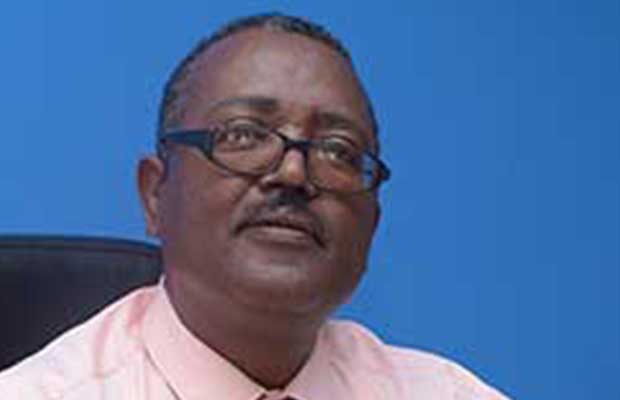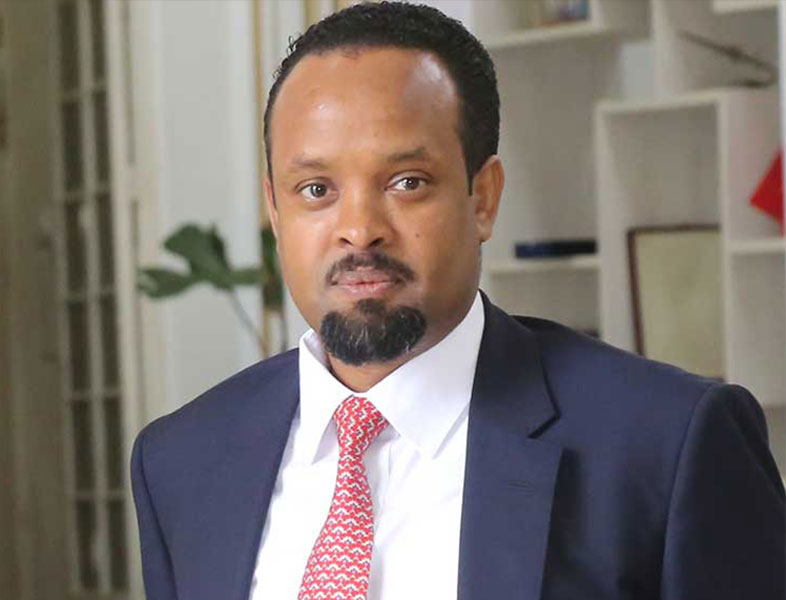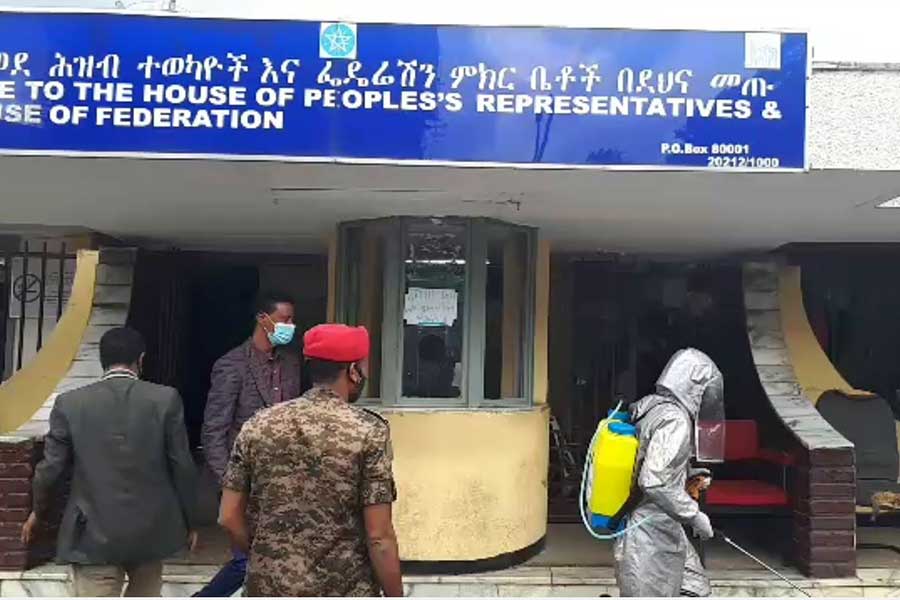
Sunday with Eden | Jul 27,2019
Oct 16 , 2020
By Eden Sahle
In my neighbourhood, and in most areas around Addis Abeba, giant billboards have popped up with the face of Prime Minister Abiy Ahmed (PhD) prominently displayed on them. Several of them include the text: “From Meskeremto Meskerem, my choice.”
Meskeremis the first month of the year, corresponding mainly to September, in the calendar Ethiopia uses, and where members of both legislative houses begin their annual sessions. The slogan thus has a message that could potentially be misinterpreted. It seems to imply that the Prime Minister should serve for life, one September after the other, year after year.
Ethiopia does not have constitutional term limits on the Prime Minister. The individual can technically stay in power for life within an entirely legal scenario. Nonetheless, many people would argue that this would not be in the interest of the nation. Term limits put authority in check and motivate leaders to accomplish as much within a limited time frame.
As the elections are slated to take place next year, as the government has indicated, I am curious about electoral campaigns and what all political parties are offering, including the government.
Unfortunately, all I hear from is the Prosperity Party, and the accomplishments of its chair, the Prime Minister. It is perhaps for this reason that many would find the assertion that opposition parties are failing to make their case to the public somewhat naïve. Indeed, making the case for this argument is that some major opposition figures are currently in jail.
Being a politician in Africa is one of the riskiest professions anyone could opt for. Few doubt this. There are unimaginable sacrifices to be made to run for election, let alone to make it to office. This stems from the poor political culture that exists, where opponents do not merely argue and compete to win minds. They are actively trying to destroy each other.
But it is not like there is a choice other than attempting to fix our poor state of political infrastructure through elections. The alternative is depressing, because it entails violence. As Ethiopians must be well aware by now, armed struggle is no guarantee for democracy.
The election is one of the crucial rights of citizens since it gives individuals a voice. It is a fundamental contribution to democratic governance through the representatives elected by the people. Elections enable us to select leaders and to hold them accountable for their performance in office.
Without free and fair elections, leaders would not be pressured to deliver results. It allows for a peaceful transition of power by pressuring institutions and those in power through the mandate that elections represent. In their competition for power, political leaders are also incentivised to develop fresh ideas and policy prescriptions to have a healthy competition needed to strengthen democratic institutions and the democratic process.
It should be one of the main tasks of all political parties to encourage citizens to vote. They should clear the hesitation from themselves and the people that elections are always rigged in Africa. They should build confidence in voters that each voice is valuable to empower someone they support to advocate for their right in government.
There is a fear in this. In lobbying for voter turnout, opposition parties and individuals may feel that they may inadvertently legitimise a process that may indeed be rigged. This is why those with state power need to meet the people in the middle. The burden of realising an election that is perceived to be free and fair falls on the shoulders of the government. It is incumbent upon institutions such as the National Electoral Board of Ethiopia and the courts to rise to the challenge to meet the demands of the people for just representation.
This is all the more important considering the democratic traditions we should want to create. Free and fair elections are gateways to lasting democratic systems that can survive the test of time.
Take for example the United States, a country that did not have presidential term limits until an amendment in 1951. Serving just two terms was merely a tradition set forth by George Washington, the country's first president. It remained intact for about 150 years. Even in Africa, Nelson Mandela famously kept his promise to serve only one term. South Africa remains a relatively strong democracy compared to the rest of Africa.
Elections are unpredictable for Ethiopia - a nation of over 100 million with diverse needs and views. Political players need to make their case to the people once the campaign season starts, even if their path to electoral success is low. Citizens should vote and make their voices heard, and the government should do the legwork to ensure that democratic institutions function independently to realise free and fair elections.
Democracy starts from elections. They serve as forums for the discussion of public issues and facilitate the expression of public voices. When the electoral process is competitive, candidates and parties express their ideas and future agendas. Citizens such as me, who stayed away from exercising their voting rights for long, will also be motivated to make their voices heard.
PUBLISHED ON
Oct 16,2020 [ VOL
21 , NO
1068]

Sunday with Eden | Jul 27,2019

Commentaries | Oct 02,2021

Exclusive Interviews | Jan 05,2020

Commentaries | Jan 16,2021

Fortune News | Jul 12,2021

Fortune News | May 31,2020

Fortune News | Aug 22,2020

Viewpoints | Jun 21,2025

Radar | Nov 06,2021

Radar | Apr 12,2020

Photo Gallery | 174681 Views | May 06,2019

Photo Gallery | 164904 Views | Apr 26,2019

Photo Gallery | 155127 Views | Oct 06,2021

My Opinion | 136708 Views | Aug 14,2021
Editorial | Oct 11,2025

Dec 22 , 2024 . By TIZITA SHEWAFERAW
Charged with transforming colossal state-owned enterprises into modern and competitiv...

Aug 18 , 2024 . By AKSAH ITALO
Although predictable Yonas Zerihun's job in the ride-hailing service is not immune to...

Jul 28 , 2024 . By TIZITA SHEWAFERAW
Unhabitual, perhaps too many, Samuel Gebreyohannes, 38, used to occasionally enjoy a couple of beers at breakfast. However, he recently swit...

Jul 13 , 2024 . By AKSAH ITALO
Investors who rely on tractors, trucks, and field vehicles for commuting, transporting commodities, and f...

Oct 11 , 2025
Ladislas Farago, a roving Associated Press (AP) correspondent, arrived in Ethiopia in...

Oct 4 , 2025
Eyob Tekalegn (PhD) had been in the Governor's chair for only weeks when, on Septembe...

Sep 27 , 2025
Four years into an experiment with “shock therapy” in education, the national moo...

Sep 20 , 2025
Getachew Reda's return to the national stage was always going to stir attention. Once...

Oct 12 , 2025
Tomato prices in Addis Abeba have surged to unprecedented levels, with retail stands charging between 85 Br and 140 Br a kilo, nearly triple...

Oct 12 , 2025 . By BEZAWIT HULUAGER
A sweeping change in the vehicle licensing system has tilted the scales in favour of electric vehicle (EV...

A simmering dispute between the legal profession and the federal government is nearing a breaking point,...

Oct 12 , 2025 . By NAHOM AYELE
A violent storm that ripped through the flower belt of Bishoftu (Debreziet), 45Km east of the capital, in...